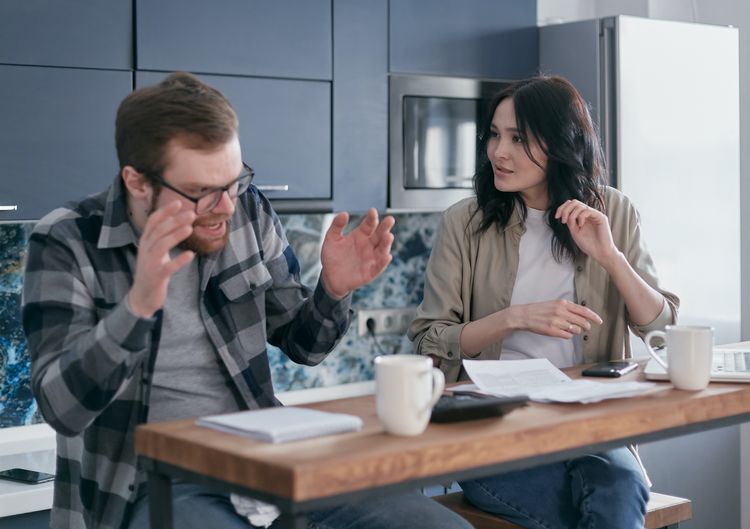One Easy Trick To Make Yourself Happier

Improve your happiness in 5 minutes a day
Does that sound too good to be true?
Five minutes. That's no time at all, but it could make the biggest difference in your life. You owe it to yourself to try. There is no risk involved.
If you're doubting this claim, I don't blame you. I did too. Ever since implementing these tips, I have seen my happiness increase and my relationships with others strengthen.
So what is the big secret?
Gratitude
I'm going to explain how gratitude has such a big impact on happiness and the science behind it. Then, I'm going to share my own tricks to add gratitude to my life.
What is Gratitude?
Gratitude is a feeling or showing of appreciation for something, whether it is tangible or intangible. It is a feeling of thankfulness for kindness.
How Does Gratitude Make Me Happy?
In positive psychology, studies have consistently shown that gratitude is linked with increased happiness. Gratitude comes from recognizing the good aspects of one's life. In doing so, people find a connectedness to something larger than themselves. Gratitude helps us feel more connected to other people, nature, or spirituality.
When we are unhappy, dissatisfied, or depressed, our internal monologue reflects that. Minor inconveniences transform into insurmountable mountains. When you are in this mindset, you are unconsciously building a habit of thinking more negative thoughts. It isn't your fault. But it is extremely difficult to break out of the habit.
Negative thoughts turn into negative feelings. Negative feelings turn to negative behaviors.
Emotions are contagious.
Negative behaviors are anything you do that isn't healthy emotionally or physically. While they make give you some instant gratification, in the long term they make you feel worse about yourself. Examples:
- overeating
- excessive alcohol
- self-harm
To break the cycle, there needs to be intention. We can't do the same things over and over and expect happiness to come to us "because we deserve it." I'm not saying you don't deserve happiness. But if you're waiting for it to come to you, you will be waiting a long time.
The Science Behind It
Two positive psychologists, Dr. Robert Emmons and Dr. Michael McCullough, conducted several studies on gratitude.
In one study, they asked a group of people to write a few sentences each week for 10 weeks. They divided the group into three:
- Group 1: they asked them to write about things they were grateful for during the week.
- Group 2: they asked them to write about their annoyances or the things that upset them during the week
- Group 3: they asked them to write about their week. They were not given any emphasis on whether it should be positive or negative.
After 10 weeks, their results were outstanding.
Those in Group 1 (Gratitude group) were more optimistic and overall felt better about their lives. They also exercised more and made fewer visits to the doctors compared to Group 2 (Annoyance group).
Another study done by Dr. Martin Seligman looked at the impact of positive psychological interventions. He divided his study participants into two groups:
- Group 1 (Test group for positive psychological interventions)
- Group 2 (Control group- not given any positive psychological interventions)
During one of the study weeks, he asked Group 1 to write a letter of gratitude. He asked them to pick someone who they never properly thanked for their kindness, and write and deliver the letter to them. For the Control group, he asked them to write about one of their earliest memories.
After completing this assignment, those in Group 1 had an enormous increase in their happiness. The effect on happiness was greater than any of the other positive psychology interventions. The benefits of that one tool lasted for a month!
Other studies have looked at the impact of gratitude and strengthening relationships. One study looking at couples found that individuals who expressed their gratitude felt more positive about their partners. They also felt more comfortable and confident in expressing any concerns in the relationship.
It's not just our personal relationships that are strengthened by gratitude. Managers who say "thank you" to their employees have employees who are more motivated.
Another study divided the university fund-raisers into two groups:
- Group 1: They received a pep talk from the director who expressed gratitude for their efforts.
- Group 2: Control Group - did not receive any pep talk.
The results?
Group 1 (gratitude group) made 50% more fund-raising calls compared to the control group.
As we can see, several studies show the big impact gratitude can have in our lives. But now what do we do with that information? Below are some exercises that can help introduce a mindful gratitude practice into your life.
How Can I Add Gratitude Into My Life?
In five minutes a day, you can break the cycle of negative thoughts and train your brain to be more positive. Mindfully adding positive psychology and gratitude to your life will increase your overall mood. It is a lot easier to work towards your goals when you feel better about yourself.
Here are some exercises:
1. Think about 5 things you are grateful for each morning. Start your day with that positivity and witness the change it brings. Your list should change each day, as you try to find new things to be grateful for. Pushing yourself to find new things will force you to seek out positive thoughts. It will become easier and more natural to recognize the surrounding kindness.
2. Write 5 things you are grateful for in a Gratitude Journal. This is very similar to the first exercise, but they are written down. Noting them in a notebook is best, as it feels more personal. This also gives you a catalog of positive experiences and memories to look back on.
3. Tell people "Thank you!" Now that you are starting to recognize more acts of kindness, express your gratitude to the people in your life. This will make both you and the other person get a boost of happiness. When you recognize people's kindness, they feel appreciated. They will also be more likely to help you in the future because you have strengthened that bond with them.
4. Writing exercise. Pick one moment where you felt especially grateful. Reflect on the situation. What happened exactly? What were your thoughts back then? What did you think at the time? And now, what are your thoughts and feelings about that experience?
5. Write a letter of gratitude. Just like the scientific study, you can experiment on yourself. Think of someone who you didn't get to thank properly. Write them a letter by hand, giving them thanks and why. Bonus points if you send it to them!
-
Gratitude has been scientifically proven to have the greatest impact on our overall mood and happiness level. It makes you feel better, and it improves your relationships with others. It only takes five minutes a day to change your mindset intentionally from a more negative one to being more positive. Breaking the habit of negative thinking is challenging, but it can be done with the exercises given.
If you like this article, subscribe to the website to get access to all the latest posts.




